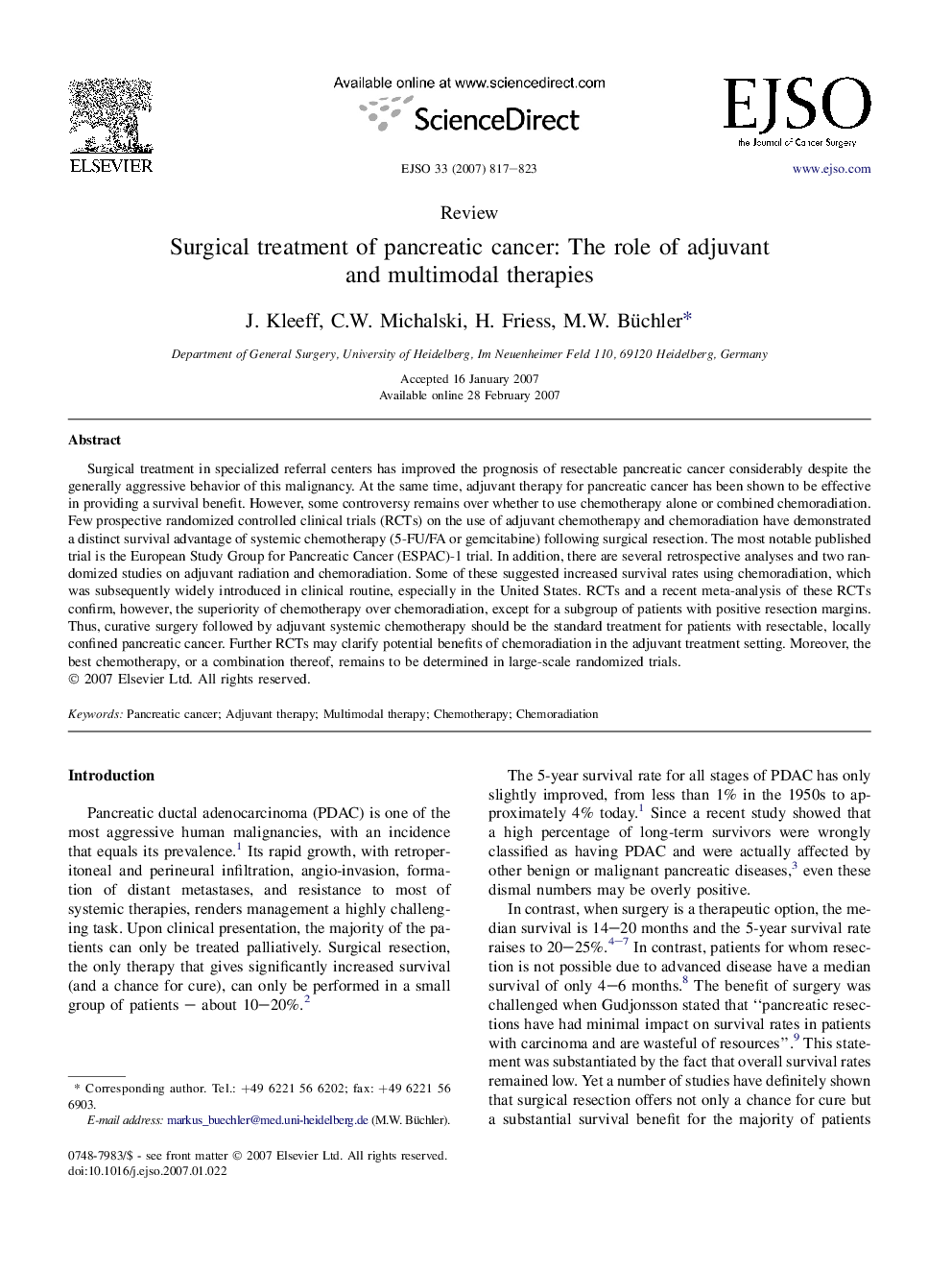| Article ID | Journal | Published Year | Pages | File Type |
|---|---|---|---|---|
| 3988441 | European Journal of Surgical Oncology (EJSO) | 2007 | 7 Pages |
Surgical treatment in specialized referral centers has improved the prognosis of resectable pancreatic cancer considerably despite the generally aggressive behavior of this malignancy. At the same time, adjuvant therapy for pancreatic cancer has been shown to be effective in providing a survival benefit. However, some controversy remains over whether to use chemotherapy alone or combined chemoradiation. Few prospective randomized controlled clinical trials (RCTs) on the use of adjuvant chemotherapy and chemoradiation have demonstrated a distinct survival advantage of systemic chemotherapy (5-FU/FA or gemcitabine) following surgical resection. The most notable published trial is the European Study Group for Pancreatic Cancer (ESPAC)-1 trial. In addition, there are several retrospective analyses and two randomized studies on adjuvant radiation and chemoradiation. Some of these suggested increased survival rates using chemoradiation, which was subsequently widely introduced in clinical routine, especially in the United States. RCTs and a recent meta-analysis of these RCTs confirm, however, the superiority of chemotherapy over chemoradiation, except for a subgroup of patients with positive resection margins. Thus, curative surgery followed by adjuvant systemic chemotherapy should be the standard treatment for patients with resectable, locally confined pancreatic cancer. Further RCTs may clarify potential benefits of chemoradiation in the adjuvant treatment setting. Moreover, the best chemotherapy, or a combination thereof, remains to be determined in large-scale randomized trials.
